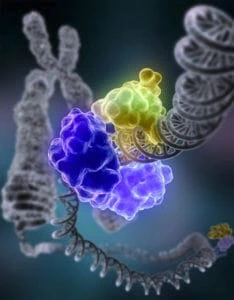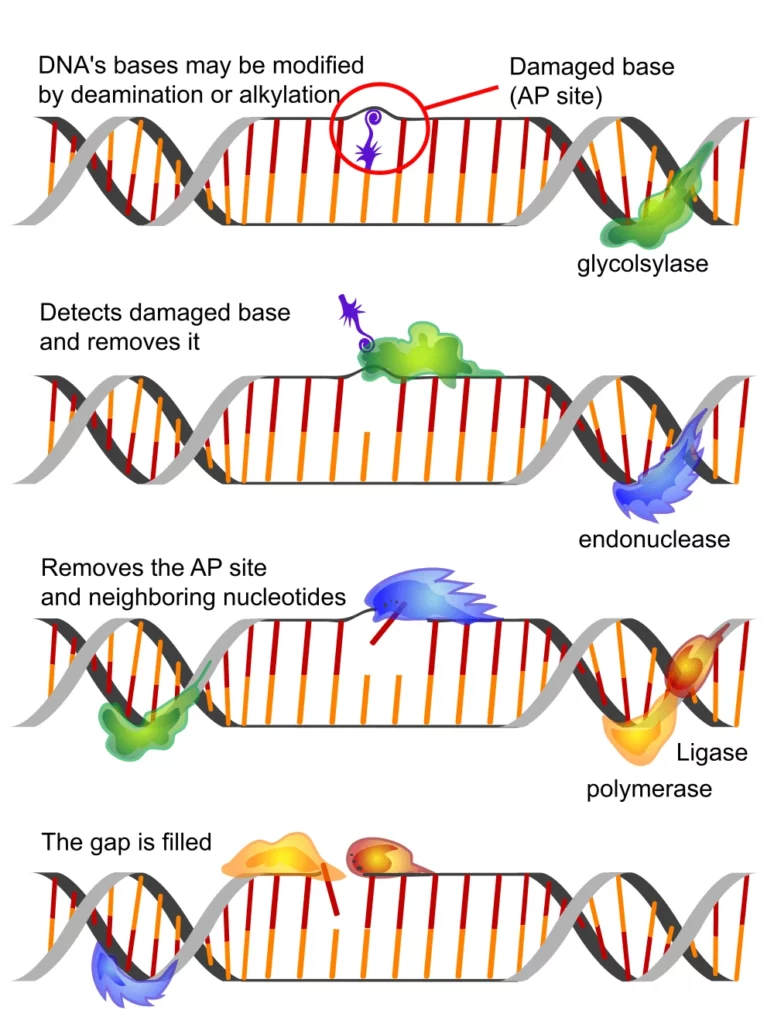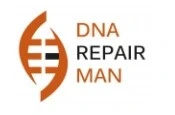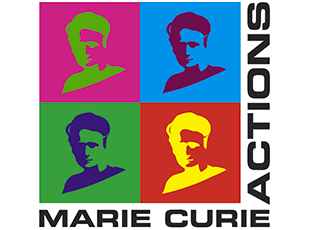DNA repair with molecular machines: DNARepairMan
Twelve European organizations from academia and the private sector, from the Netherlands, Deutschland, France, the UK, and Poland, will constitute a research network to study DNA repair.
The main idea behind the DNARepairMan Project is to understand some of the critical human DNA reparation pathways.
This project is completed now. If interested, feel free to contact us.
Molecular machines for DNA repair pathways: introduction

We can count 1 million molecular lesions per cell daily in our bodies. These lesions lead to DNA damage, which can cause unregulated cell division and, consequently, tumors.
To fight against the damage, DNA repair is constantly active, and a profoundly mechanistic understanding of its pathways is now fundamental. Indeed, the ability of our cells to repair is vital for the integrity of the genome.
The relevance of this question has been recognized thanks to the 2015 Nobel Chemistry Prize, granted to three researchers focusing on DNA repair. Thus, the main goal of the DNARepairMan project is to perpetuate the virtuous cycle between new technologies, new questions, and new insights.
Molecular machines for DNA repair pathways: project description

The DNARepairMan project gathers scientists from three areas of research: biologists, chemists, and physicists.
It aims to answer a fundamental research question: what are the switches and motors’ statistical properties and molecular mechanisms involved in two critical DNA repair pathways?
Thus, the objectives of this consortium will be to:
- Characterize the mechanism of lesion formation.
- Determine the structure of the helicase recruitment complexes.
- Characterize the catalytic properties of the unwinding complexes.
- Understand the regulation of their activity and establish the link between DNA repair and replication.
To address this challenge, the Microfluidics Innovation Center developed a DNA-Paint microfluidic platform implemented at LMB and CNRS, to multiplex single-molecule light microscopy experiments.
Check our application note about microfluidic colocalization setup for DNA analysis.
This project has received funding from the European Union’s Horizon research and innovation program under the Marie Sklodowska-Curie grant agreement No 722433 (DNARepairMan project).
Researcher

Kos Breiev
PhD candidate
- MSc in chemistry and water treatment from Kiev University
- Applied Physics and software development (Java, Labview) at the University of Innsbruck, Austria
Areas of expertise:
Organic chemistry, applied physics, plasma, software, microfluidics


